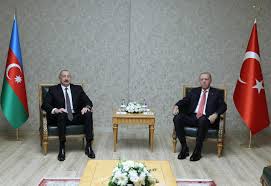
Introduction
The name Recep Tayyip Erdogan is synonymous with significant political transformations both in Turkey and across the globe. As the President of Turkey since 2014, and serving as Prime Minister prior to that, Erdogan has reshaped the country’s governance and its role on the world stage. His policies have sparked discussions regarding authoritarianism, nationalism, and international diplomacy, making it crucial to understand his influence in current global politics.
Domestic Policies and Political Landscape
Under Erdogan’s rule, Turkey has experienced considerable changes. He has consolidated power through constitutional amendments that shifted the government from a parliamentary system to a presidential one, enabling him to exert greater control over the executive branch. The controversial referendum in 2017 solidified these changes, leading to increased criticism over democratic backsliding. The state of media freedom and opposition groups in Turkey has been severely affected, with numerous journalists and political opponents facing arrest.
Foreign Relations and Global Influence
Erdogan’s foreign policy is equally contentious. He has positioned Turkey as a pivotal player in Middle Eastern politics, engaging in a complicated mix of diplomacy and military action in countries such as Syria and Libya. His involvement in these conflicts has not only bolstered Turkey’s regional influence but also strained relations with NATO allies and the West, particularly over issues such as the purchase of Russian military equipment.
Turkey’s Economy and Future Outlook
The economic landscape in Turkey remains a focal point of Erdogan’s governance. Turkey has faced substantial economic challenges, including high inflation and currency devaluation, which have sparked protests and dissatisfaction among the populace. Erdogan’s response to these economic issues has included an unorthodox approach to interest rates, aiming to stimulate growth while battling inflation, which many experts argue may further destabilise the economy.
Conclusion
As Erdogan approaches the next election cycle in 2023, the stakes are high for both Turkey and its role on the global stage. His ability to navigate economic turmoil while maintaining political control will be pivotal for his administration’s future. Furthermore, Erdogan’s policies will continue to raise critical questions regarding democracy and governance in Turkey while shaping the dynamics of international diplomacy and security. Understanding Erdogan’s approach and its implications will be essential for global stakeholders as they engage with Turkey in the coming years.
You may also like

The Evolving Role of the Manager in Modern Business

Understanding the Current Political Landscape in the UK
